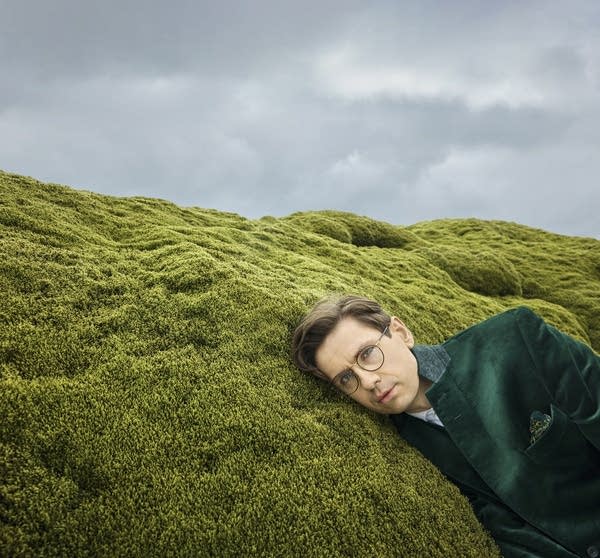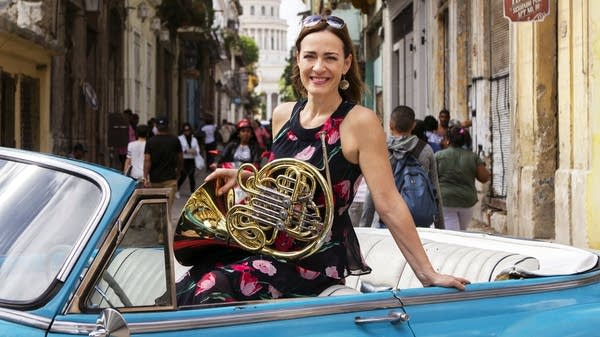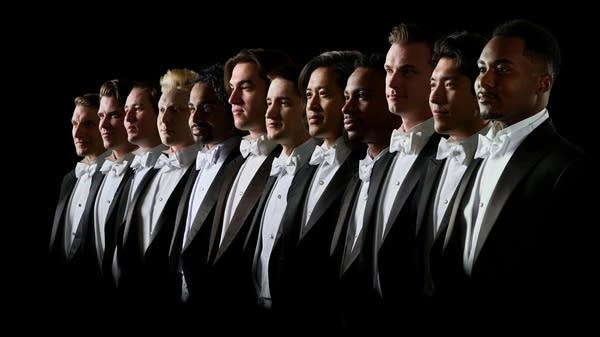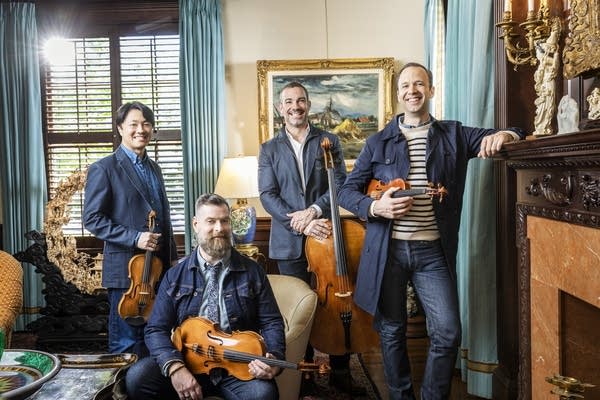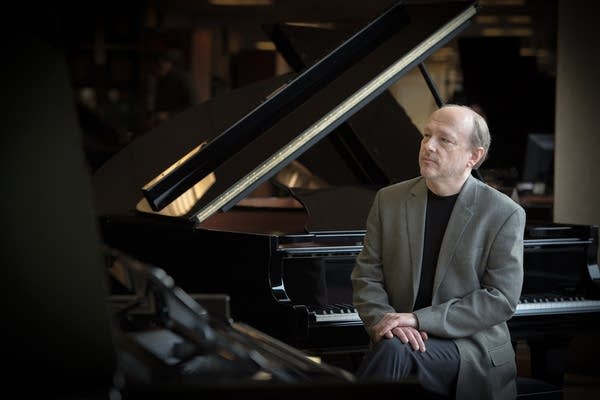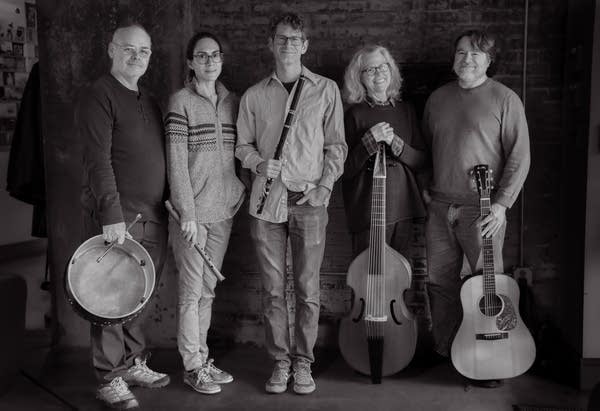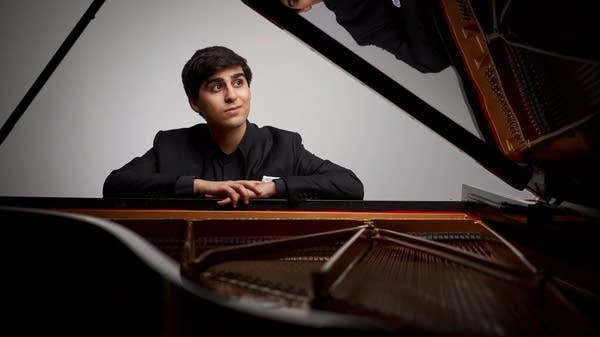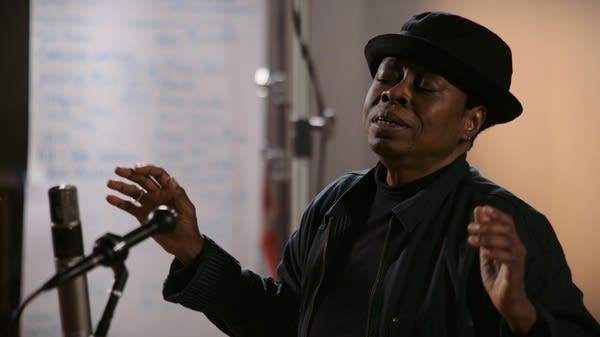
Chiara String Quartet — Brahms by Heart (Azica 71289)
For the Chiara String Quartet, it all started in Grand Forks, N.D. "Three of us at least were able to get to Juilliard together for a Masters degree," says violist Jonah Sirota. "And it was the end of that time, just when we graduated, that we count as the beginning of our career. As a group, we got a Rural Residencies Grant from Chamber Music America to live and work in Grand Forks, North Dakota. And that was the start, for us, of professional concertizing and doing competitions, so that was 14 years ago."
After more than a decade of introducing younger audiences to classical music in non-traditional venues, the Chiara String Quartet is exploring a new approach. "What we've really been focusing on recently is bringing it all back to our own group identity and making a recording of Brahms quartets," Jonah says. "We actually made a recording earlier in our career of these quartets, and we weren't really happy with it. So our second violinist came up with the idea of memorizing the movements of the pieces, so when we recorded them, we could be more spontaneous. It was really huge, sort of a mental shift for us at that time. And we ended up with these new Brahms recordings that we're much happier with, that feel much more like us."
Brahms by Heart contains the complete Brahms string quartets and the String Quintet No. 2 in G Major — all from memory. First violinist Rebecca Fischer says flying without a net has developed a new sense of trust between the members of the quartet. "It's interesting you used that comparison because it's funny, for me, I feel a lot less nervous when I go onstage without music," she says. "Part of that is the amount of work we have to put into it. There's a real vulnerability when we go on stage that, to me, seems even more genuine and profound than it was before. It's funny to say that because this is what I do and I love. But this exercise of playing by heart has changed everything."
Jonah says that sense of vulnerability is also heard in the music itself. "People talk about how composers were so intimated after Beethoven. It's interesting because Beethoven was intimidated by Mozart and Haydn," Jonah notes. "He got some commissions for string quartets early in his career but he didn't feel ready. And Brahms felt a lot of pressure after Beethoven. He wrote 20 different quartets that he threw out and we don't have. But the ones he did leave are really wonderful works."
In the liner notes, cellist Gregory Beaver reveals how Beethoven may have influenced the string quartets of Johannes Brahms, as Rebecca explains: "Well, Gregory mentioned that the cavatina of Beethoven Op. 130 was an important inspiration for the Brahms C-minor slow movement, which is an extraordinary structure and begins with the second violin solo. Both great slow movements begin with second violin solo and have this back-and-forth between violins."
Brahms also incorporates a few of his own tricks in these works. In the Quartet No. 2, Rebecca says it's what you don't hear that makes this work unique. "Even in the first 20 bars, he's using these silences to get us to stop and think," she says. "You think of Brahms as having this thick, rich texture. But he also beautifully uses silences, whether it's a very poignant rest in order to take a breath, almost as if he wants us to sing our music in that way. It's really very natural to play that first movement in particular because it just goes. And it has these immensely long lines that feel quite natural, as if we were singers."
Violist Jonah Sirota enjoys Brahms, in part, because the composer gives his instrument a chance to shine in the third movement of the Quartet No. 3. "It's just such a love song to the sound of that instrument," Jonah says. "So rare that a viola is used in a way that so highlights the rich darkness of the middle range of the instrument. Often when it's featured, it's set high up, like a violin. But this gets at the core of what makes this instrument unique. And you can tell from that Brahms really admired the sound of the instrument."
In the final work on this recording, Brahms throws in an additional viola. "Oh, it's just an extraordinary piece. And we wanted Roger Tapping to join us," Jonah says. "He's the former violist of Takács Quartet and the new violist in the Juilliard String Quartet, and so we were very lucky to have time in his interim to record this wonderful Op. 111 Brahms Quintet with him. I remember first hearing this piece in high school on a recording. It had a lot of energy. And then not long after that, I saw a performance. And I couldn't believe it. It opens with this incredible, undulating energetic motion in the upper four voices — violins, violas. And then through all that, the cello has to sort of really, I'm going to say, fight. So the kinetic energy, the look of it from the audience just completely bowled me over. It looked like butterflies on stage. I can't think of any other piece of chamber music that has quite that effect — it's just extraordinary. It was really special."
In fact, the entire disc of Brahms by Heart, with the Chiara String Quartet, is very memorable.
Love the music?
Show your support by making a gift to YourClassical.
Each day, we’re here for you with thoughtful streams that set the tone for your day – not to mention the stories and programs that inspire you to new discovery and help you explore the music you love.
YourClassical is available for free, because we are listener-supported public media. Take a moment to make your gift today.
Your Donation
About New Classical Tracks®
Host Julie Amacher provides an in-depth exploration of a new classical music release each week.
Subscribe on Apple Podcasts, TuneIn, Radio Public, or RSS.


